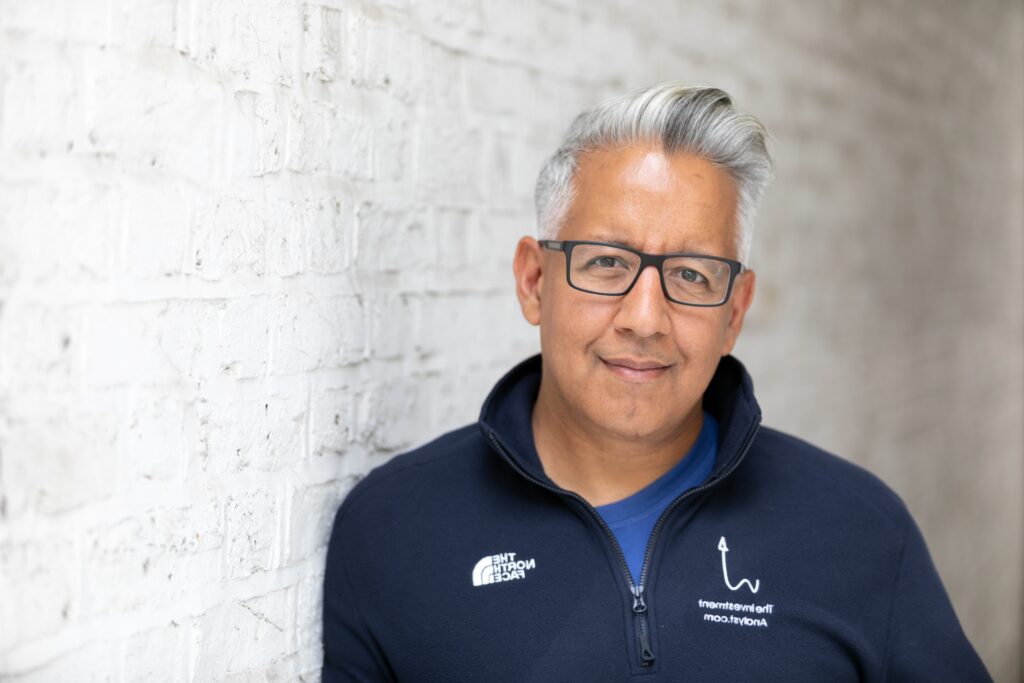
By Geoff Robinson, #1–ranked analyst and Founder of TheInvestmentAnalyst.com,
In the fast-paced world of investment banking, rising to the top requires more than just financial acumen. It demands a unique blend of skills, an unwavering work ethic, and the ability to navigate complex organisational structures.
Few understand this better than Geoff Robinson, former Managing Director at UBS, who led the Fundamental Analytics team to ten #1 rankings in the prestigious Institutional Investor survey. In this article, Robinson shares his journey and the invaluable lessons he learned.
The path to excellence
Robinson’s career trajectory is a testament to the power of adaptability and seizing opportunities. After graduating from Durham University with an Economics degree, he began his professional life as a chartered accountant at Price Waterhouse. However, he quickly realised this wasn’t his true calling. A fortuitous encounter with a friend led him to join a small consultancy focused on training for the investment banking industry. This move set the stage for successful ventures, including building and selling a global training and consultancy business.
The pivotal moment in Robinson’s career came when he joined UBS to set up a Greenfield startup called Fundamental Analytics. “It was a wonderful time to be in investment banking and leading a franchise that was certainly differentiated relative to what was actually on the street,” Robinson recalls.
This role would ultimately define his legacy in the industry.
The making of a top analyst
When asked about the skills crucial to his success, Robinson emphasises that there’s no one-size-fits-all formula. Instead, he points to a combination of technical prowess, soft skills, and a unique mindset:
- Technical and Soft Skills: “You’ve got to be a marketer, a presenter, a talker, and sometimes even a philosopher,” Robinson explains. “But you’ve also got to have emotional intelligence to understand the needs of your users and feel the market’s pulse.”
- Unparalleled work ethic: Robinson credits his success to an unwavering commitment. “What was always in the back of my mind was how hard I was to beat,” he says. This drive pushed him to extraordinary levels of dedication, often at the expense of work-life balance.
- Efficiency and effectiveness: With limited hours, Robinson stresses the importance of developing “the most effective and efficient workflow possible.”
- Constructive paranoia: Borrowing from Andy Grove’s philosophy that “only the paranoid survive,” Robinson maintained a healthy paranoia that kept him on his toes and drove him to improve continually.
- Ability to find calm: Paradoxically, Robinson also emphasises the importance of finding moments of calm and detachment. For him, this often came during his beautiful custom Triumph Bobber motorcycle commute, providing 45 minutes of serenity to work through professional and personal challenges.
Navigating challenges
One of Robinson’s most significant hurdles was the bureaucracy inherent in large financial institutions. “That bureaucracy can be soul-destroying because you come across endless ‘no’s and obstacles,” he reflects. However, he viewed these challenges as opportunities to innovate and find creative solutions within the established guardrails.
A prime example was the creation of UBS’s Research Academy, an EdTtech platform for institutional investors. Despite the complexities of working within a sensitive information barrier, Robinson and his team successfully built a platform generating well over $1 million annually – not bad for a side hustle. “This required a huge amount of tenacity and agility to navigate the guardrails and bureaucracy,” he notes.
Building a winning team
His entrepreneurial background shaped Robinson’s approach to team management. He fostered a collaborative environment where team members had each other’s backs and were encouraged to experiment and learn from failures. “We wanted critical feedback to make things better,” he explains. This team dynamic was crucial to their consistent #1 rankings in the Institutional Investor survey.
Staying ahead of the market
Robinson doesn’t mince words when maintaining a competitive edge: “Obsession would be the answer.” He lived and breathed his work, reading voraciously and staying plugged in 24/7. “If you’re trying to stay ahead of the market, and the market is pretty efficient, very effective, and full of very good people, you’ve got to be good, dedicated, and obsessed to find that level of success,” he asserts.
The evolution of fundamental analytics
Throughout his career, Robinson witnessed and drove significant changes in fundamental analytics. Integrating data-driven approaches using languages like Python and R allowed for more sophisticated pattern recognition across thousands of companies. Collaboration with UBS Evidence Lab provided access to alternative data sources, including website scraping and geospatial analysis, enhancing their analytical capabilities.
Looking to the future, Robinson sees generative AI as the obvious next frontier. “AI is in a better position to take a more holistic, outside view on data and allow us to see insights that maybe as humans we miss,” he predicts. He also thinks sell-side research needs to spend more time thinking about how they deliver their product to the buyside – the answer is not a pdf document!
The most valuable lesson
Reflecting on his career, Robinson shares a surprising insight: the importance of celebrating small wins. “I’ve been guilty of hitting achievement targets and then just thinking, ‘OK, what’s next?'” he admits. Now, he advocates for taking moments throughout the day to acknowledge and enjoy even minor accomplishments, allowing the positive feelings to accumulate and enhance overall job satisfaction.
Advice for aspiring analysts
Ultimately, it’s clear that becoming a top-ranked analyst demonstrates that success in the financial industry requires more than just analytical skills. It demands a unique combination of technical expertise, soft skills, relentless drive, and the ability to adapt and innovate within constraints. By embracing these principles and balancing obsessive dedication and personal well-being, aspiring analysts can chart their path to the top of their field.





















